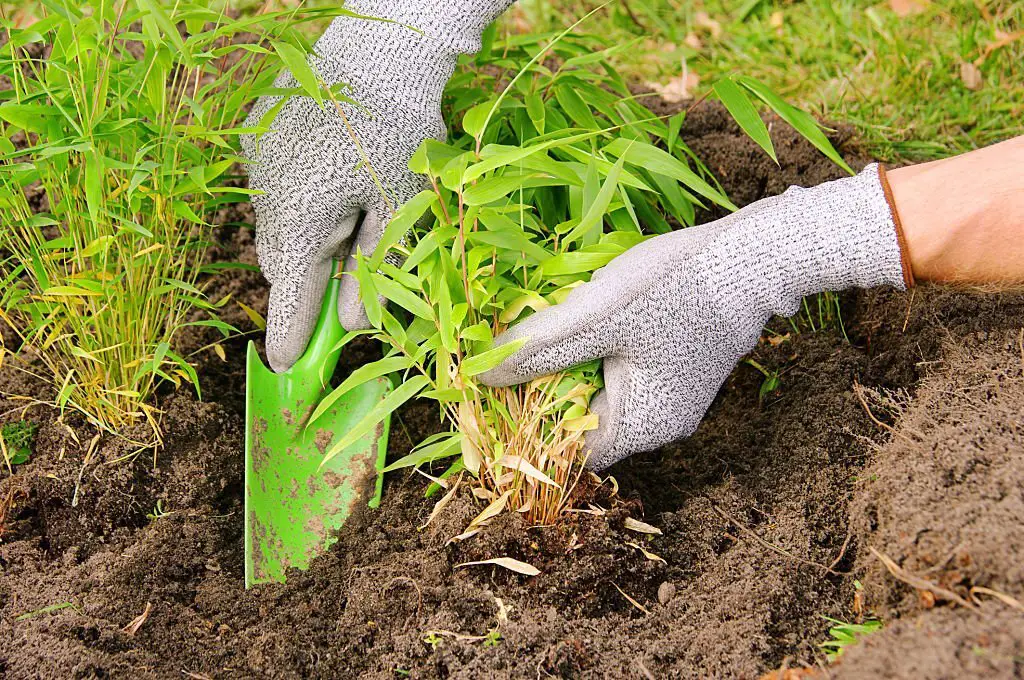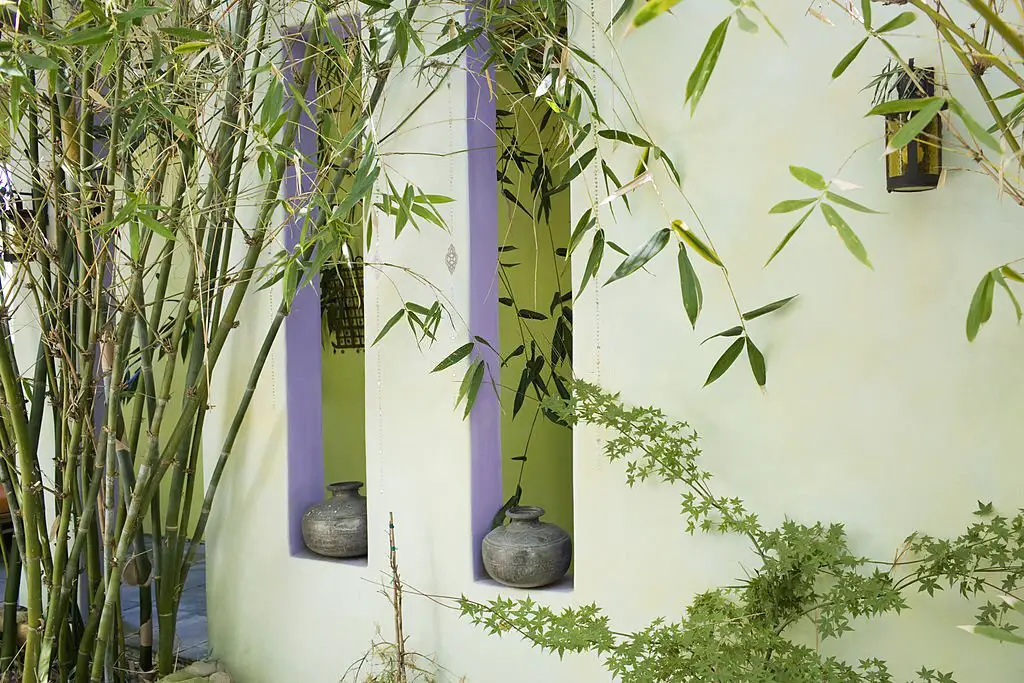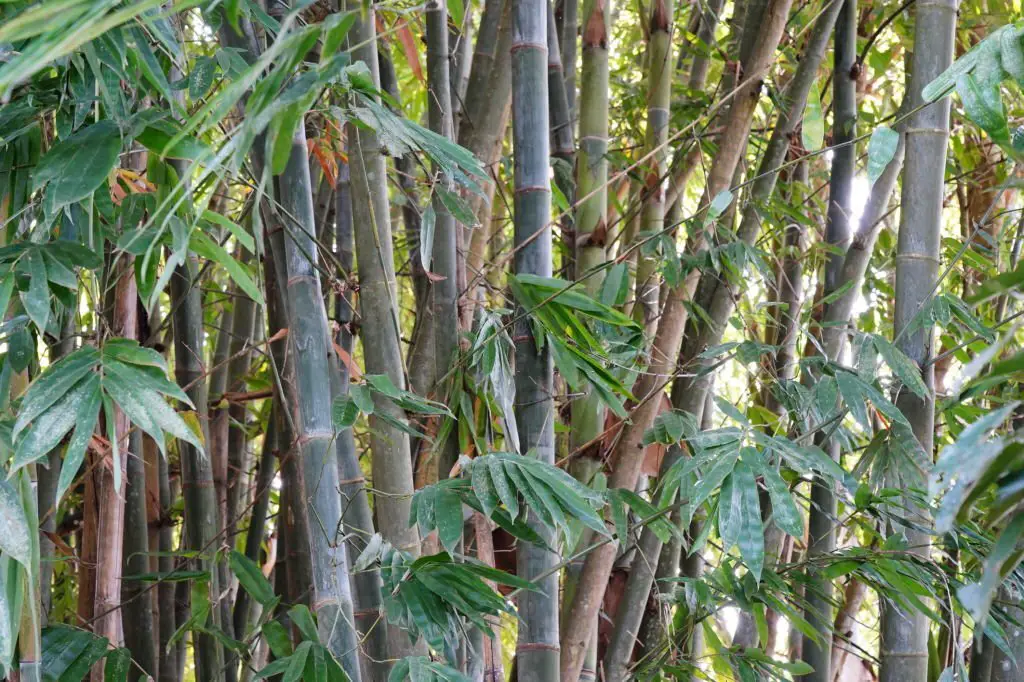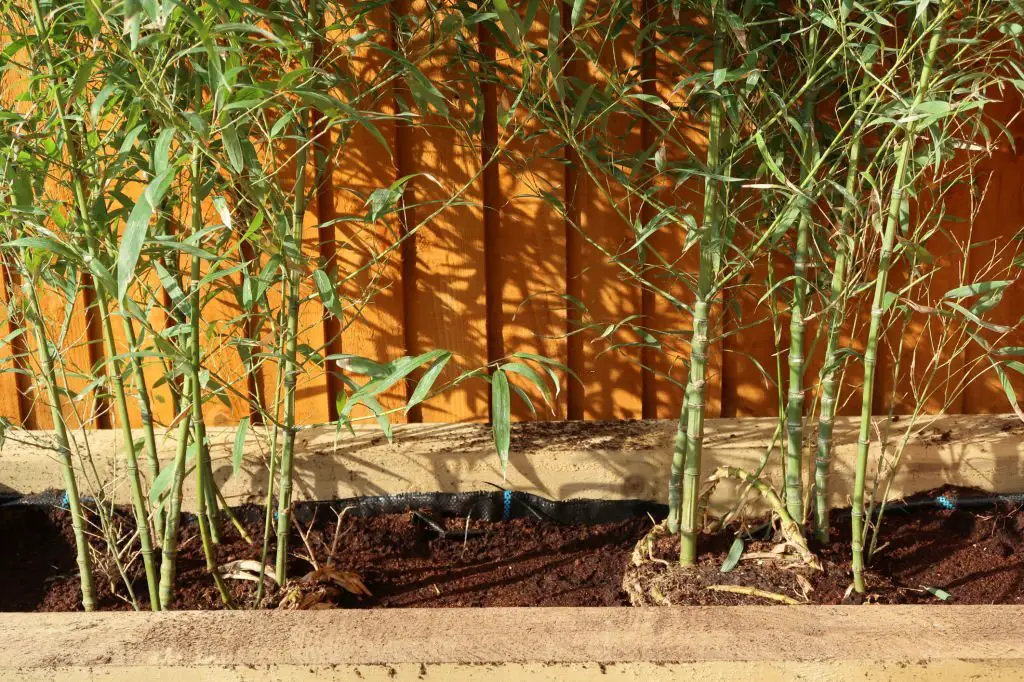Growing trees is among the efficient ways one can care for their surroundings. And among the trees, you can grow is bamboo. They provide a vast range of benefits from their low maintenance costs and resistance to drought. Unfortunately, growing them has some disadvantages too. Keep reading to get insights on both sides, whether to plant or not plant these plants.
Pros
Let’s start with the pros of planting bamboo first. Bamboo is an incredible resource that provides us with a range of benefits, from its environmental impacts to its practical and decorative uses.
1. Benefits the Environment
Bamboo plants are advantageous to the environment. They help in the reduction of greenhouse gases in the atmosphere, as they absorb carbon dioxide and emit oxygen in the airspace. Studies show that the plant releases 35% more oxygen gas into space than other plants. In addition, bamboo grass prevents soil erosion. They have a broad root system that enables them to hold the soil particles together, consequently preventing run-off and landslides. They also provide renewable sources of energy for home use and commercial purposes.
2. Grows Quickly
Unlike other trees, bamboo will take a short duration to reach its mature size. This is because you can grow it in any season. The plant does not experience disruptions during winter or the dry season- It can thrive in all seasons. You are, however, required to provide the optimal growing conditions, that is, well-drained and fertile soils. The plant can also survive in averagely poor soils, although you should avoid extremely water-logged and dry soils. Try regular irrigation if the climatic condition is immensely dry.
3. High Pest Resistance
Bamboo is hardly affected by pests. Most animals such as deer and wild rabbits stay away from these plants. It produces pest-resistant chemicals that help keep damaging pests at bay. The only pests that may affect them are bamboo mites which only occur when the climate is tremendously dry. Accordingly, you will incur little to no costs in keeping pests and destructive animals away.
4. They Provide Privacy and Shade
This grass grows very tall, and very fast, forming dense foliage, an incredible shade source. The thickness additionally makes it suitable for a privacy hedge. There are various bamboo varieties, and the sea-breeze type is ideal for privacy. It ranges from medium to large size and has lateral branches with large drooping leaves, creating a good privacy screen. Moreover, the bamboo you use for hedging is non-invasive. They grow in the same spot without spreading in your yard or next-door neighbors. Subsequently, they keep you private from passers-by and nosey neighbors.
5. They are Versatile
Research indicates the existence of over 1000 bamboo varieties available in different colors and dimensions to fit varying needs. For instance, you can choose a running species to fill a space in your backyard or a clinging type that disperses a few inches and becomes tall to make a hedge in your homestead. Moreover, some varieties prefer shade while others blossom in direct sunshine. Therefore, comfortably choose a species that can survive in your climatic condition.
Bamboo is also versatile in terms of its uses. You can use it for flooring, paper, toys, and fishing rods. You can also use them to make cutting boards safer than wooden ones. In addition, bamboo products are biodegradable, which makes them eco-friendly- they are decomposable, which helps prevent landfills.
6. Calming Property
A bamboo forest is a place of solace and serenity; it’s an oasis from the hustle and bustle of everyday life. Let your worries slip away as you take a step into the lusciously green paradise, letting its calming effect embrace you. It’s like stepping into a tranquil dreamscape that could’ve been plucked from a painting.
Bamboo’s ability to create an atmosphere of peace and calm is one of its greatest advantages. Its rustling leaves act as natural music, providing soothing white noise and helping ease tension. Bamboo also releases oxygen at night, making it great for improving air quality in urban areas.
The tranquil properties of bamboo make it an ideal choice for those who need some respite from their hectic lives – or even just want to be surrounded by something beautiful.
7. Aesthetics
As well as its calming properties, bamboo has some significant aesthetic advantages. It’s a beautiful, natural addition to any garden or outdoor space. Its attractive green hue and tall stature make it an ideal choice for a decorative feature or as part of a larger landscaping project. Plus, the distinctive texture of the leaves and stems adds interest and character to any setting.
Bamboo can also be used to create stunning visual effects. Its tall, graceful form is perfect for creating a dramatic wall or screen in the landscape. It can provide privacy while still allowing light and air to pass through its foliage. Planting bamboo alongside other plants helps create a lush, vibrant look that can enhance any space.
8. Easy to Maintain
Bamboo is simple to grow and requires minimal upkeep. Since it grows quickly, you’ll soon have a dense forest! Once established, it requires less watering and fertilization than other plants. And compared to other trees, it doesn’t require as much pruning. In addition, bamboo is quite strong and can resist the majority of climatic conditions, including both hot and cold summers. Its extensive root system gives the soil stability and aids in preventing soil erosion.
Anybody looking for a low-maintenance plant with lots of advantages should choose it. It not only looks lovely in any garden setting, but due to its hardiness, it will stay there for many years. Also, its resilience to various weather conditions makes it a great choice for people who live in harsh environments.
Cons
After talking about the pros, now let’s see what are the cons of planting bamboo. You may think that bamboo is a harmless addition to any garden, but there are some important considerations when planting this resilient plant.
1. Difficult to Eradicate

Planting bamboo is a long-term relationship that cannot be eliminated easily. It can take several years to eliminate this tropical grass from your lawn. This may adversely affect you if you’re a gardener looking to attempt something different every season or would like to try a new garden design. To wholly suppress bamboo, combine various methods such as mowing and burrowing. In extreme circumstances, you will require herbicides to make the methods more effective and efficient, which is quite costly. In addition, the elimination exercise is time-consuming. It takes a minimum of two years. Therefore, you need to be forbearing and diligent.
2. It can Easily Spread into the Neighboring Yards
Even if you have settled on a clumping type, you can encounter troubles with your neighbors. This is because the grass is renowned for spreading, and neighbors will be concerned that it might escalate into their premises. Mostly, this will happen if your neighbors are unaware of the bamboo varieties that do not spread. Moreover, the species may grow very fast, especially when planted in low-lying areas that easily collect water. Due to the favorable condition and the fact that they do not respect property lines, they may quickly spread to your neighbor’s property. In some cases, you might be sued and charged for the wreck caused on your neighbor’s property.
3. It’s Difficult to Find the Right Bamboo
As mentioned earlier, different bamboo fits various environmental conditions. In addition, the varieties serve different purposes. It might not be easy to comprehend the different types since some are usually misbranded. Besides, other plants look exactly like bamboo grass which may bring a lot of confusion. It would be best if you hired a professional to make the correct choice. Experts will conduct adequate research to determine the most suitable type that fits your needs.
4. Threat to Biodiversity
Bamboo is a great hazard to indigenous plants. The plant is known to dominate its natural habitat. As a result of its tall and thick foliage, it provides shade and suffocation to the native vegetation. Consequently, little or no vegetation grows beneath. In addition, bamboo leaves near water streams negatively affect the litter-feeding invertebrates since they trap trash. Subsequently, this affects the processes in the ecosystem, such as the food web. Moreover, bamboo grass causes a monoculture that is unsuitable for wildlife.
5. Depletion of Soil
Planting bamboo may be an appealing landscaping option for some, but it can be detrimental to the soil. Bamboo has been shown to deplete the soil of essential nutrients and minerals. It has a large root system, and because it grows quickly, it absorbs more nutrients from the soil than other plant species. As a result, this can cause the soil to become depleted of important elements needed for nearby vegetation.
Soil depletion can be especially damaging in areas where bamboo is not native. It can crowd out native plants that require specific conditions provided by the original soil makeup because it spreads quickly and aggressively. This reduces biodiversity and disrupts local ecosystems, making them less resilient to climate change or environmental changes.
6. Eliminating Bamboo may Require Herbicides
Suppressing bamboo grass may be effective if you use weed killers. Some of the herbicides used include glyphosate and imazapyr. However, you are advised to use them at high rates for the best results. Herbicides pose a great challenge if you are trying to keep an organic lawn. For an incredible outcome, employ specialists. They will accurately target the leaves and other unwanted weeds in your garden. With this, the residual in the soil will be minimized. In addition, the chemicals will only kill the directly sprayed plants.
Herbicides may also be disadvantageous to water bodies. They easily dissolve and bond with water molecules, making them easy to travel downstream and through the soil. Consequently, this pollutes and degrades water quality, thus affecting aquatic life.
There are good aims for growing bamboo. Similarly, there are also negative aspects you should put into consideration. If you are thinking of growing this tropical grass, don’t hurry into the resolution. Take your time to research the best type for your garden. If you appreciate your correlation with neighbors and biodiversity, hire a professional to help you make the best choice. Otherwise, it might get messy and stressful for you.
Ultimately, planting bamboo is a choice that each individual must make for themselves. But with careful consideration and conscientious maintenance, anyone can ensure that their decision has minimal environmental consequences while still enjoying the beauty and tranquility of these remarkable plants.




